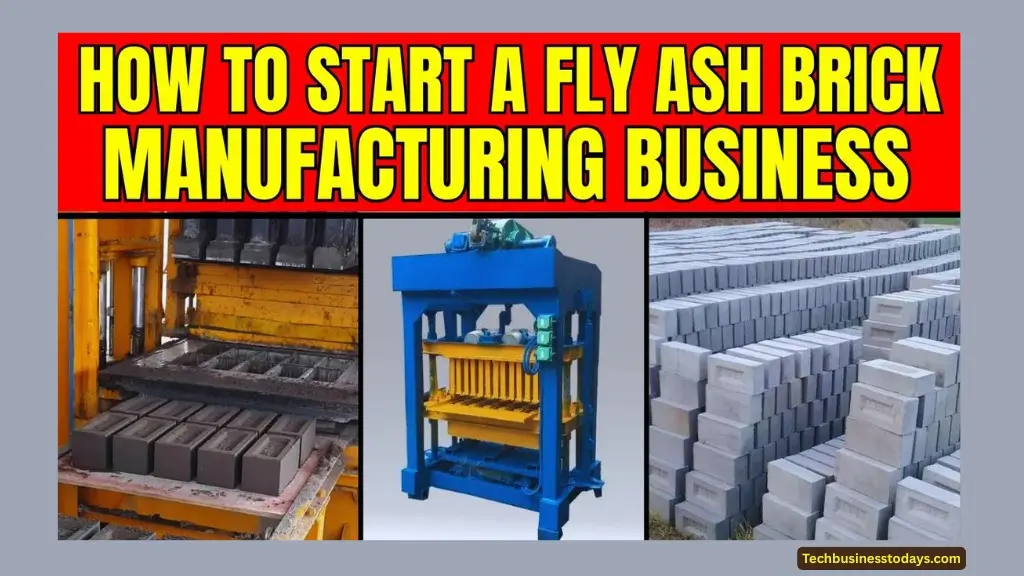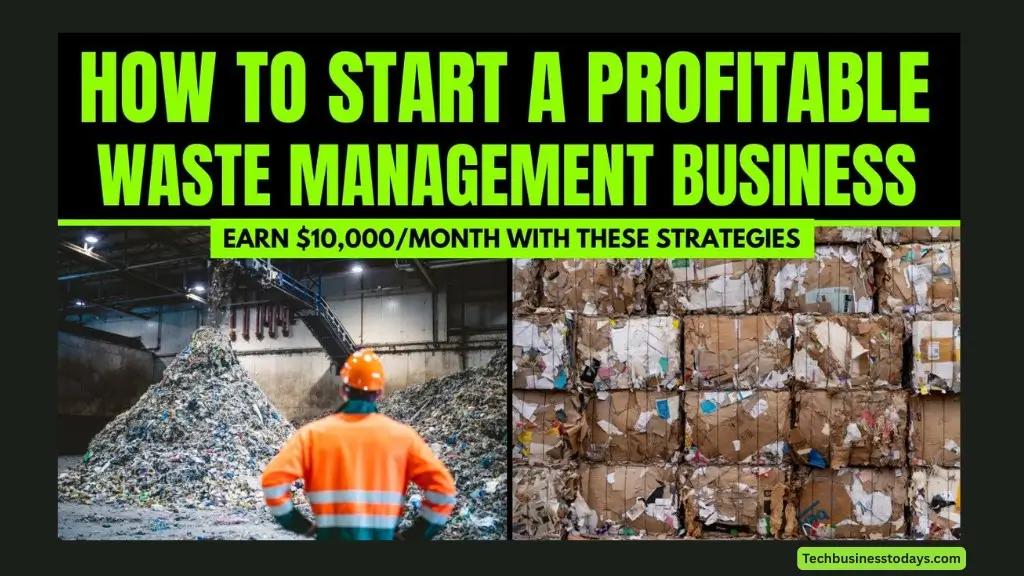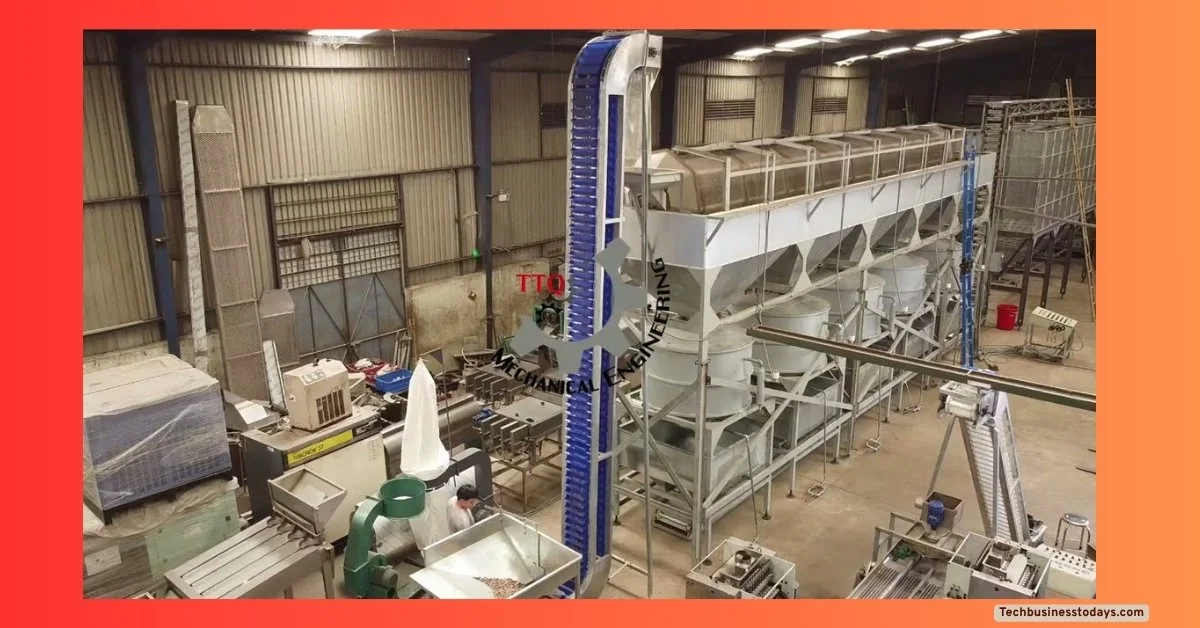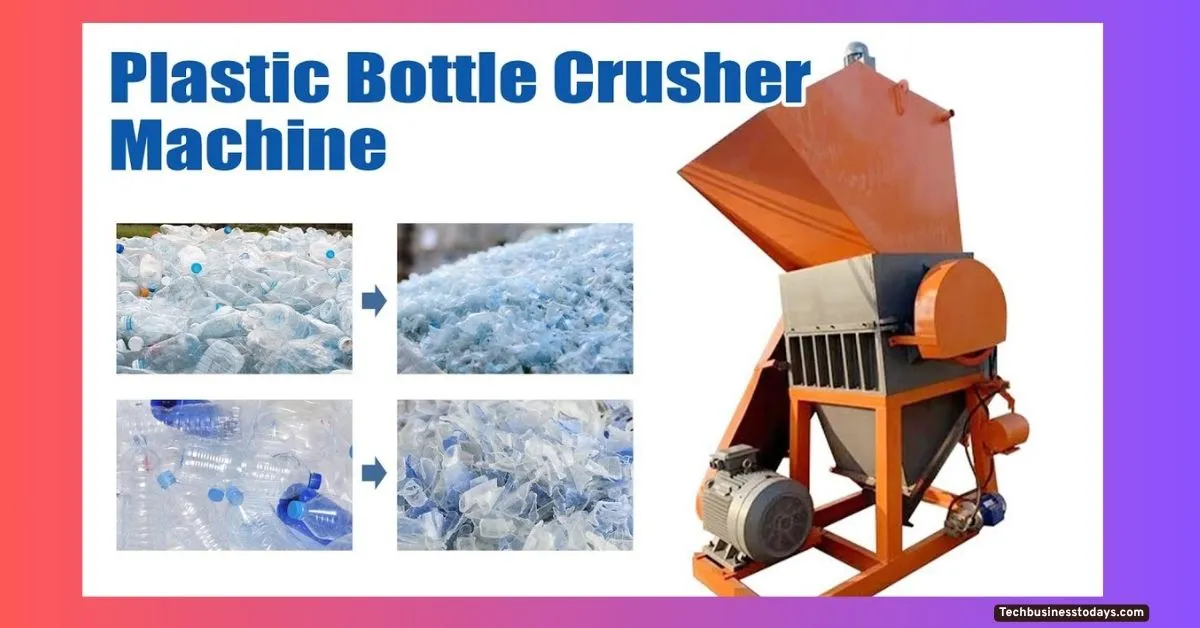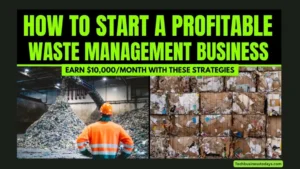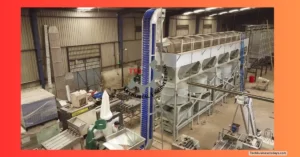Building a house is part of almost everyone’s dream, and bricks make that dream happen. The brick manufacturing business is booming across the globe, especially in India. With growing cities, population increases, and ongoing construction, the need for bricks keeps rising. The best part? You don’t need massive funds to get started, and you can see real income from your first month if you plan well.
Starting a brick manufacturing business appeals for several key reasons:
- High and steady demand year-round
- Low investment needed to launch
- Quick income – can start earning in the very first month
- Simple technology and scalable growth potential
- Local market opportunity with manageable competition
If you’re exploring how to start a brick manufacturing business with no money, want to know about brick manufacturing plant cost in India, or are curious about starting this business from home, read on for a full guide to getting started and making it profitable.
Market Scope and Demand for Bricks in India
Bricks are the mainstay of construction across homes, schools, offices, and public spaces. Without bricks, it’s hard to imagine building any lasting structure. India is the second largest brick producing country in the world, and demand here barely takes a break.
Why Bricks Stay in Demand
Growth in cities, more people needing homes, and big government pushes for urban housing and smart cities mean constant need for bricks. The projects pouring in are huge, and the trend will only keep growing.
Key drivers for strong brick demand:
- Rapid urbanization in towns and cities
- Consistent population growth
- Expanding government and private infrastructure (like smart cities)
- Active housing projects and real estate development
Market Stat:
India’s brick market is set to hit $3.68 billion USD by 2030.
Because of steady, local demand and the fact that you’ll mostly compete with other local suppliers, this business brings less risk than many other manufacturing ventures. Even with modest setups, you’ll find year-round orders.
Types of Bricks You Can Manufacture
Choosing the right brick type depends on your market needs, the money you can invest, and the materials easiest for you to source. Here are the main types you can consider:
| Brick Type | Key Features | Typical Use | Relative Cost |
|---|---|---|---|
| Clay Bricks | Traditional red, sturdy | Popular in residential construction | Low |
| Fly Ash Bricks | Lightweight, eco-friendly | Urban and green projects | Moderate |
| Cement Bricks | Durable, uniform | Commercial and high-rise buildings | Moderate |
| Hollow Bricks | Light, cost-saving, insulate well | Modern, energy-friendly buildings | Moderate |
| Interlocking Bricks | No mortar needed, quick builds | Temporary or quick projects | Moderate |
Clay bricks remain the classic choice in many areas, but fly ash, cement, and even interlocking and hollow bricks are gaining ground. Look closely at what builders in your area prefer. Visiting sites or talking to contractors will help you decide what to focus on.
Picking the Right Spot for Your Brick Plant
Location matters more than you’d think in this business. While you don’t need a fancy shop, you do need a decent piece of land where you can make, store, and move bricks easily.
Checklist for a Good Brickmaking Location
- Space (at least 1,000–2,000 sq. ft.) for production and storage
- Easy road access for bringing in materials and sending out finished bricks
- Close to construction sites and markets to reduce delivery costs
- Affordable rent or low-cost land purchase
- Room to store raw materials (clay, sand, cement, fly ash, etc.)
The best locations are near fast-growing neighborhoods or on the outskirts of cities where housing projects are underway. Making things easy for trucks to load and unload should be a top priority.
Sourcing Raw Materials for Making Bricks
Your choice of raw materials depends on what kind of brick you make. For most standard brick types, you’ll use combinations of:
- Soil or clay
- Lime
- Cement
- Sand
- Fly ash
Buying these materials from local suppliers saves on transport costs and helps avoid supply problems. Always set up deals with at least one backup source for each material. This way, if your regular supplier faces a shortage, your brick production stays on track even during busy periods.
Raw materials sourcing checklist:
- Decide which materials you need, based on chosen brick type
- Find reliable local suppliers for each
- Negotiate backup agreements with alternate vendors
- Check material quality and price changes regularly
Machinery and Equipment You’ll Need
You no longer have to rely on old-school, hand-shaped bricks – the market now expects better finish and higher output. That’s where modern brick making machines come in.
For brick manufacturing, common machinery includes:
- Mixers: For blending raw materials thoroughly
- Molders: For shaping bricks into required sizes and forms
- Dryers: For ensuring even and crack-free drying before shipping
- Other systems like cutters, conveyors, and packaging tools
Machines are available in manual, semi-automatic, and automatic variants. A basic semi-automatic setup starts at roughly ₹3 lakh and goes up depending on speed, capacity, and automation level. Before buying, compare not just price but also warranty, after-sales service, and reviews from other brick manufacturers.
Essential machines:
- Pan Mixer (for mixing)
- Brick Molding Machine
- Hydraulic Press (higher strength bricks)
- Drying Bays/Dryer
What Does It Cost to Start a Brick Manufacturing Plant in India?
Let’s break down the initial investment. If you’re asking how to start a brick manufacturing business with no money, keep in mind some costs just can’t be avoided, but starting small is possible.
| Item | Estimated Cost |
|---|---|
| Raw materials | ₹2–3 lakh |
| Machinery | From ₹3 lakh (semi-auto) |
| Space, electricity, water, connection | ₹2–3 lakh |
| Daily working capital (pay, fuel, misc.) | ₹25,000–₹30,000 |
| Total (Medium Scale) | ₹15–₹25 lakh |
| Large-Scale (more production lines) | ₹30 lakh and above |
If you choose to rent land or use family property, costs drop. You may be able to cut costs further by borrowing equipment, buying refurbished machines, or forming a partnership. Even with these savings, plan at least ₹10–₹15 lakh for a small but efficient setup.
Licenses and Legal Steps You Need to Take
Don’t skip this part. Running any manufacturing business in India means having your paperwork sorted before you begin full operation. It avoids fines, complaints, and business shocks.
Key permits and licenses for a brick manufacturing business:
- Register your business (single proprietorship, partnership, LLP, or private limited company)
- Get a trade license from your local municipal office
- Apply for environmental clearance (especially if using a kiln – check pollution rules)
- Obtain a land use and factory license according to the Factories Act
- Register for GST (mandatory for turnover beyond ₹20 lakh per year as of 2024)
- Obtain any needed labor or safety permits
A quick chat with a legal consultant in your city will save headaches later. Rules can change regionally, so make sure your permits line up with your exact location.
Making Bricks: The Step-by-Step Process
All brick types have their own methods, but here’s a simple way to manufacture cement bricks, which are widely popular due to their strength and uniform look.
Step-by-step cement brick manufacturing:
- Mixing: Combine cement, stone chips, and soil in a ratio of 1:6
- Add Water: Pour enough water to create a working mixture
- Stirring: Blend the mixture using a pan mixer or manually for 1–2 minutes
- Molding: Pour this wet mix into brick molds or hydraulic presses
- Setting: Leave the bricks in the molds so they retain shape (usually 24 hours)
- Drying: Once set, remove bricks from the molds and dry them in the shade (not direct sun) or use a mechanical dryer to prevent cracks due to rapid moisture loss
- Finishing: Pack and stack dried bricks for delivery
Tip:
Slow, even drying ensures that concrete bricks do not crack or shrink excessively. Don’t rush this or your finished product could fail quality checks.
If your market prefers other types (like fly ash or interlocking bricks), adjust the recipe and process as needed, but the core steps remain the same.
Marketing Your Brick Business for Success
Brick making may sound old-fashioned, but effective marketing can set you apart from bigger factories. Most of your customers will be local builders, construction firms, and hardware shops, but today’s digital tools make outreach easier.
Effective marketing ideas:
- Build relationships with local construction companies, real estate developers, and contractors
- Visit hardware stores and offer to be their local supplier
- Deliver on time, every time – reliability builds trust and word-of-mouth
- Share short videos and photos of your production process on WhatsApp, Facebook, and Instagram to show transparency
- Set up a WhatsApp Business account – post stock updates, prices, and delivery time
- Join nearby real estate groups on Facebook or local forums to introduce your services
- Offer limited time discounts to new construction projects
- Give regular customers better payment terms or small loans to cement loyalty
Having a friendly, reliable face makes even a young brick business seem established.
How Much Profit Can You Earn with Brick Manufacturing?
Profit depends on the bricks you produce, your daily output, and costs. To put things in perspective:
- Medium-setup (₹15–₹25 lakh investment, semi-automatic plant):
- Production: About 1 lakh bricks/month
- Sales after expenses: ₹1.5–2 lakh profit/month
- With volume, higher-grade bricks, or more lines, profits rise
If you’re ambitious, you could expand past 1 lakh bricks monthly. Just remember: Higher production brings higher costs, but also bigger returns if you win steady customers.
Quick Profit Summary
Investment: ₹15–₹25 lakh
Monthly Output: 1 lakh bricks
Expected Monthly Profit: ₹1.5–₹2 lakh
Conclusion
Starting a brick manufacturing business appeals to those looking for steady demand, a modest startup budget, and solid growth. In India, with rapid city expansions and government housing programs, this industry can be a launchpad for true financial independence.
यह भी पढ़ें.

